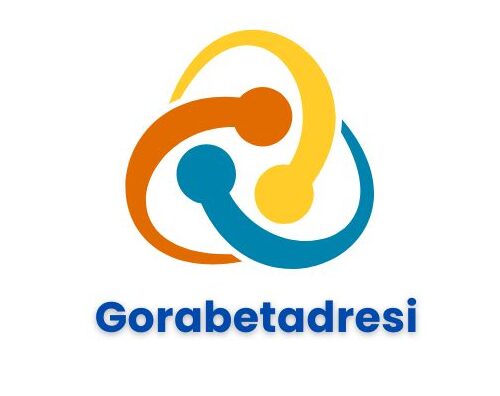Small Business Insurance is as rewarding as it is challenging. Whether you’re starting a coffee shop, offering graphic design services, or launching an online boutique, protecting what you build is key. That’s where small business insurance steps in.
This guide will break down everything you need to know about small business insurance—what it is, why you need it, the most common types of coverage, and how to choose the right plan for your business. By the end, you’ll feel confident making smart choices to safeguard your livelihood.
What Is Small Business Insurance?
Small business insurance is a collection of coverage policies designed to protect your company from financial losses due to unexpected events. These include property damage, lawsuits, employee injuries, or liability claims.
Think of it as your safety net. Without insurance, a lawsuit or accident could lead to financial ruin or even force your business to shut down.
Insurance policies for small businesses are typically flexible, allowing you to choose plans based on your specific risks and needs.
Why Is Small Business Insurance Important?
No matter the size of your enterprise, risks are inevitable. Here’s why small business insurance is essential:
1. It Protects Your Financial Health
Accidents, theft, or lawsuits can cost thousands—if not millions—of dollars. Insurance ensures you’re not solely responsible for covering these expenses, which could otherwise derail or bankrupt your business.
2. It Legitimizes Your Business
Many clients, landlords, or partners may require proof of insurance before working with your company. Having coverage boosts credibility and reassures others of your professionalism.
3. It Provides Peace of Mind
When you’re covered, you can focus on growing your business instead of worrying about what happens if disaster strikes. No one likes losing sleep over the “what ifs.”
Types of Small Business Insurance Coverage
Small business insurance isn’t one-size-fits-all. Depending on your industry, size, and operations, you’ll need different types of coverage. Below are the most common policies to consider:
1. General Liability Insurance
This is one of the most fundamental policies and covers:
- Property damage caused by your business
- Bodily injuries that occur on your property
- Legal fees if someone sues your business
Example
Imagine a customer slips on a wet floor in your store and decides to sue for medical expenses. General liability insurance would help pay for legal and medical costs.
2. Property Insurance
Whether you own or rent your workspace, property insurance protects your physical assets, such as your office, equipment, or inventory, from perils like fire or theft.
Example
If a fire damages your office and equipment, property insurance can help cover the cost of repairs and replacements.
3. Professional Liability Insurance
Also known as Errors and Omissions (E&O) Insurance, this is crucial if you provide services or advice. It protects you from lawsuits claiming negligence, errors, or failure to deliver agreed services.
Example
You’re a consultant, but the strategies you implement for a client don’t yield the expected results, and they sue. This type of insurance steps in to assist with legal fees and settlements.
4. Workers’ Compensation Insurance
If you have employees, this policy is often legally required. It covers medical expenses and lost wages for employees injured on the job.
Example
An employee at your warehouse sustains an injury while operating heavy machinery. Workers’ comp will help cover their hospital bills and recovery costs.
5. Commercial Auto Insurance
If your work involves vehicles—like delivery vans—commercial auto insurance protects against accidents, theft, or damage involving company vehicles.
Example
One of your employees gets into an accident while making a delivery. This insurance helps cover repair and medical costs.
6. Cyber Liability Insurance
With more businesses operating online, cyber liability insurance protects against data breaches, cyberattacks, and IT infrastructure damage.
Example
Hackers access confidential customer data from your e-commerce site. Cyber insurance helps cover the cost of notifying clients, legal fees, and restoring data security.
7. Business Interruption Insurance
If an unexpected event (like a fire or natural disaster) forces you to halt operations, business interruption insurance covers lost revenue.
Example
A storm damages your storefront, and you’re closed for repairs for three months. This insurance helps provide funds to pay ongoing expenses like rent and salaries.
How to Choose the Right Insurance for Your Small Business
Selecting the right insurance plan can feel overwhelming, but it doesn’t have to be. Follow these steps to make an informed decision:
1. Assess Your Risks
Start by identifying risks specific to your industry and daily operations. For instance:
- Do customers visit your location frequently? (General liability insurance)
- Do you sell physical products? (Property insurance)
- Are you storing customer data? (Cyber insurance)
2. Determine Legal Requirements
Check local and state regulations, as some types of insurance are mandatory. For example, most states require workers’ compensation if you have employees.
3. Compare Policies
Not all insurance providers are created equal. Shop around and compare plans based on coverage, cost, and reputation. Don’t just default to the cheapest option—it could leave you underinsured.
4. Bundle Policies
To save money, consider Business Owner Policies (BOPs), which bundle commonly needed coverage like general liability and property insurance into one cost-effective package.
5. Review Annually
Your business evolves, and so do its risks. Make it a habit to review and update your policy annually to ensure you’re always fully covered.
How Much Does Small Business Insurance Cost?
Insurance premiums vary widely based on factors such as:
- Type of coverage
- Business size and industry
- Number of employees
- Location and annual revenue
On average, small businesses can expect to spend:
- General liability insurance: $400–$700/year
- Property insurance: $500–$1,500/year
- Errors and omissions insurance: $500–$1,000/year
Talk to providers for personalized quotes tailored to your needs.
Ensuring Your Business’s Future
Small business insurance may not be the most exciting part of running a company, but it’s one of the most important. Accidents happen, lawsuits emerge, and unforeseen events can throw even the best-laid plans off track. Having the right coverage ensures you’re prepared for whatever comes.
By understanding your risks, researching your options, and investing in tailored coverage, you’re not just protecting your business—you’re setting it up for long-term success.











